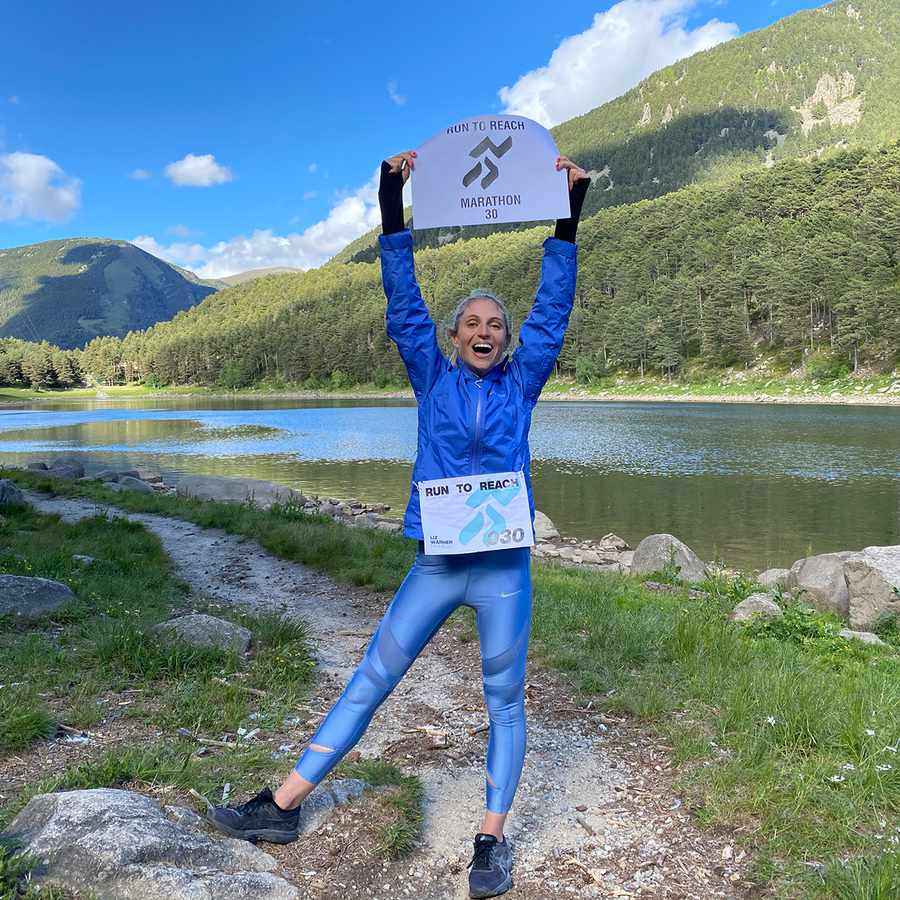
The standard life course after getting married is to settle down with your new lifelong partner, buy a house in a quaint town, and pick up a 9-to-5 job that brings home enough bacon to live a satisfying life. That's never been a path I wanted to follow.
That's when a friend mentioned a marathon in Tokyo, so I signed up for it on a whim. I started running every day to train, and the few hours I spent hitting the pavement helped me work through this truly difficult period in my life. When I finally crossed the marathon's finish line, I felt this surge of confidence—I suddenly felt completely limitless in my potential. A few months later, I signed up for my second race in Korea (I've always been attracted to the idea of becoming a world traveler) and I ended up completing 10 marathons—all in different countries—by the time I launched Run to Reach.
When I first began planning the countries I’d race in for Run to Reach, I immediately thought of the gorgeous places I had on my bucket list—Argentina, Cuba, and even the Seychelles islands, known for its pristine beaches and coral reefs. But then it occurred to me that it would be much more interesting—and invigorating—to visit countries that most travelers wouldn’t go to and ones I knew very little about.
Fourteen months and seven pairs of sneakers later, I had raced across Oman, Sierra Leone, Chile, Doha, Madagascar, Mongolia, and many more far-reaching nations. In Guatemala, I had a surreal experience racing up an active volcano that was producing billows of smoke. In Somaliland, a conservative Muslim country, I ran those 26.2 miles wearing a black long-sleeved shirt and pants, plus a black head covering, in 95°F, entirely on a straight, mind-numbing road. And on the sparsely-populated island of Socotra in Yemen, the heat was so intense during the day that the marathon didn’t begin until about 5:30 p.m.—just an hour before sunset. I ended up running most of the four-ish-hour marathon in the pitch-black, disorienting darkness; the only thing keeping me sane was the sound of my cheesy ’80s and ’90s playlist.
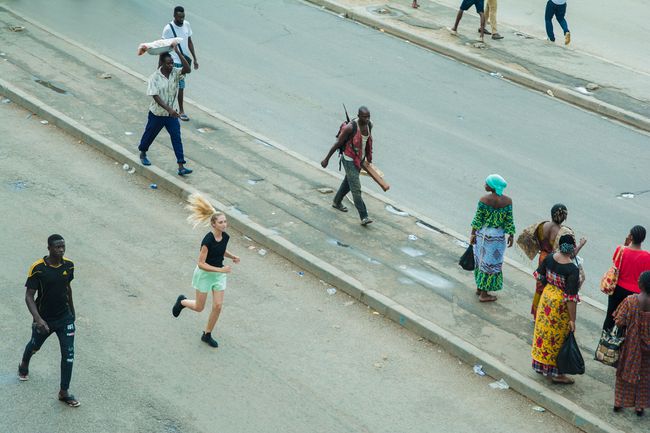
But some of the most unforgettable experiences didn't involve the race itself—but the humanity of it all. In Afghanistan, I ran alongside 45 local women who were using the marathon as a weapon to assert their independence and defy cultural norms. And a little over a week later, I traveled to Cote d'ivoire (a country located on the south coast of West Africa), where I was told two days before the marathon that I wasn't allowed to race—simply because I was a woman. After painting the picture that prohibiting me from racing would create a huge PR crisis because of my project, the officials finally let me and one other French woman run—under the condition that I sign a contract that I wouldn't accept any prize money if I won. (Spoiler: I didn't.)
I know these nations aren't the most typical travel destinations—and some people may even see them as risky and dangerous. But conflict is never the whole story. Just going to these places with an open mind and connecting with the people, you'll find that they're so happy you're visiting to appreciate the beauty of their country rather than fix it for them. In my experience, you're shown that much more respect and warmth.
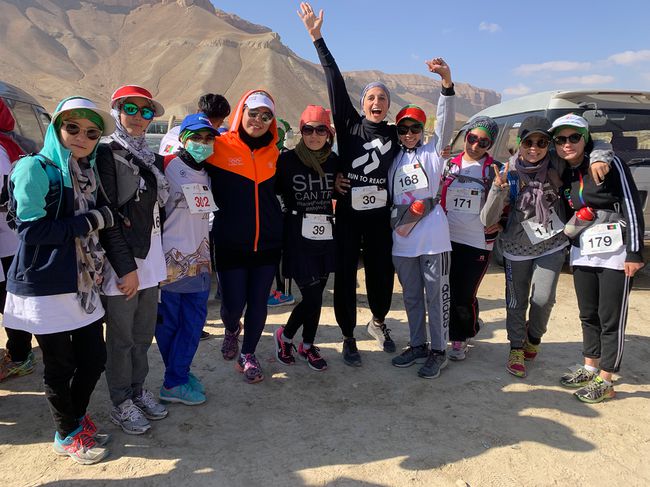
Putting the Spotlight on Empowering Organizations
Despite only having a week or two in between marathons, traveling non-stop, and spending just one combined month at home last year, running has been the easy part of the project. At this point, I can wake up and run a marathon without training for it—it just feels like another day at the office. But the administrative component of Run to Reach—from fundraising and creating awareness campaigns to actually meeting with the organizations—has been the most draining and rewarding part of it.
Before every race, I spent a week or two living in the country, trying to learn on a deep level what my partner NGO does, pouring my heart into their mission, and working with them to put together a strong campaign that showcases their work and maximizes their exposure. Before I know it, I'm jetting off to a different country and starting the whole process over again. Even though it can be emotionally exhausting to be so empathetic and try with all my might to understand what these people are experiencing, it's also incredibly gratifying—I've learned about so many issues I didn't even know existed and met with so many amazing people from empowering organizations.
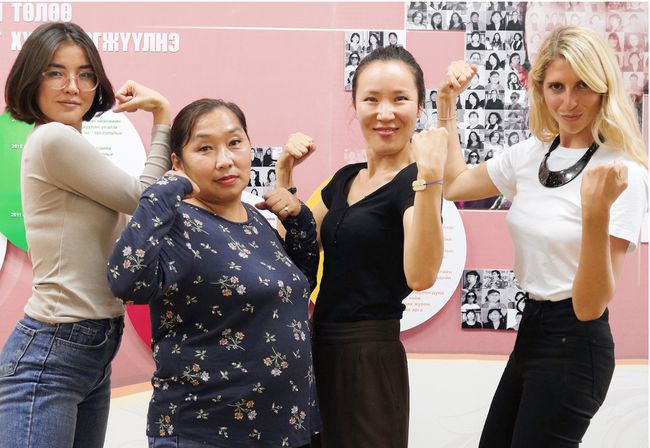
In Afghanistan, I partnered with Free to Run, an NGO that provides safe spaces for active women to run or exercise. I worked with Empow’her in Cote d’ivoire, which provides entrepreneurship training programs for Ivorian women. And in Somaliland, I joined forces with the Edna Adan Hospital Foundation, a nonprofit on a mission to end preventable child and maternal death and end the practice of female genital mutilation in the country.
The COVID-19 Complications
Soon after I finished my 28th marathon in Yemen in March 2020, the coronavirus pandemic put a huge hitch in my plans—my race in Greece and my final marathon on Mt. Everest were both canceled.
I didn’t know what was going to happen with the remainder of my project, but one of the biggest lessons I’ve learned throughout this whole journey is that you always need to make lemons into lemonade. So instead of feeling sorry for myself and calling it quits, I told myself “I will finish my project. It won’t be the way I had originally planned, but I will make the most out of this situation.” And that’s when I pivoted to create a worldwide virtual marathon.
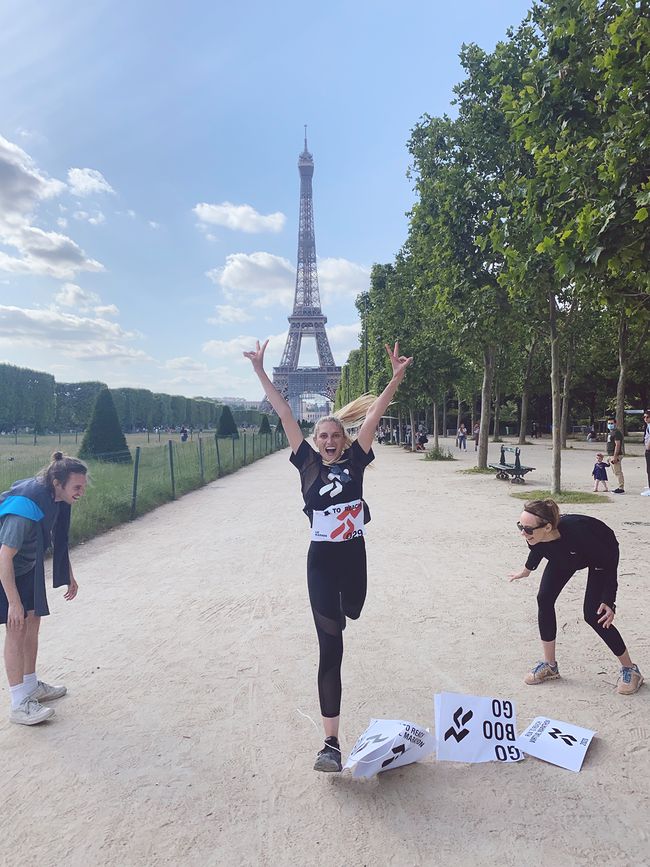
For the next four weeks, I spent about 10 hours a day reaching out to runners around the globe (most of whom I'd never once spoken to) through social media and begging them to join me in my crazy project. And the long days I spent online in my tiny Paris apartment paid off: On May 24, 500 runners from 110 countries virtually joined me on a run (by the way, 39 of those people ran full marathons too).
Even though I ran all 26.2 miles completely by myself, I’ve never felt more connected to so many different runners, and while I was technically running in France, to me, it felt like I was racing in (and benefitting) all these different countries. By the end of the race, I had raised more than $13,000 for the World Health Organization’s COVID-19 Solidarity Response Fund to accelerate efforts to develop treatments and a vaccine, provide essential supplies to frontline workers, and more.
The 30th Marathon
With just over two weeks before my 30th birthday and one marathon to go, my options for my final race were limited. Most of the European borders weren’t set to open until a week after my birthday, but Andorra, a small nation nestled on the border of France and Spain, was fortunately open to the French—and its embassy and tourism board, which was trying to promote the nation to runners, were overly supportive and excited to have me run across the country’s incredible landscapes. Along the way, I’d raise funds for the Black Visions Collective, Campaign Zero, and Black Curriculum, organizations working to combat racism and police brutality.
In the final hours before my third decade of life on June 8, I began my final marathon (plus an extra few miles in honor of my birthday) at 7,300 feet with snowflakes falling. Over those 30 miles, I ran up and down mountains, dealt with terrible leg cramps, and reflected on the last 18 months and what Run to Reach has meant to me. There had been points where I thought about quitting or I questioned whether my heart was still in this mission. And though most of me felt ready to move on to the next chapter of my life, three miles before the finish line, I slowed down and thought "I don't want this to end."
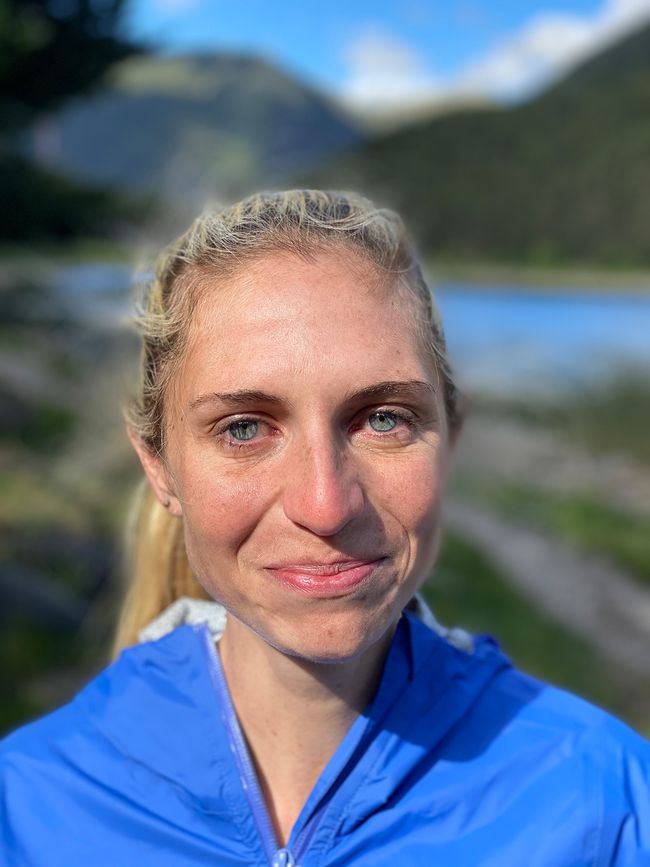
When the end inevitably came and I saw my husband standing alongside the small lake with his make-shift finish line, I felt this huge cathartic release, and burst out in tears. Despite the seven cases of food poisoning I endured, all the broken down cars while traveling, and the hours I’ve spent researching and emailing NGOs, there were so many parts of Run to Reach that were mind- and heart-expanding. In the end, I raised $51,700 to support and empower women around the world.
What's next is still a big question for me. I hope I can continue elevating the stories of the women I have met in some capacity, whether it be through a podcast or another insane project, but I'll always think about my life as "Life Before Run to Reach" and "Life After Run to Reach." Were there incredibly difficult periods of this project? Absolutely, and I'll never forget those low points. But I think life is all about pushing yourself to say yes to crazy ideas and to live at least some portion of it out of your comfort zone. I don't know what really triggered me and what allowed me to say yes to this, but I'm really grateful I did.
